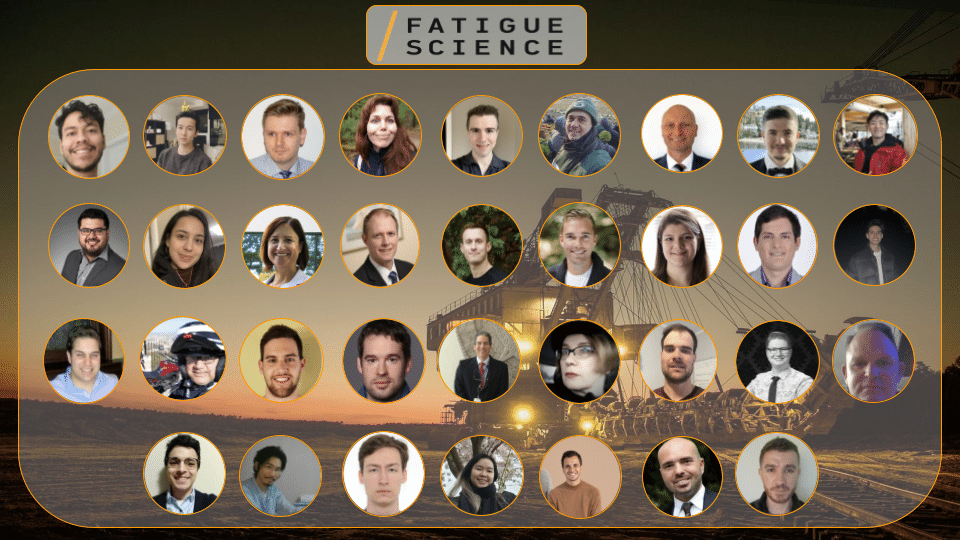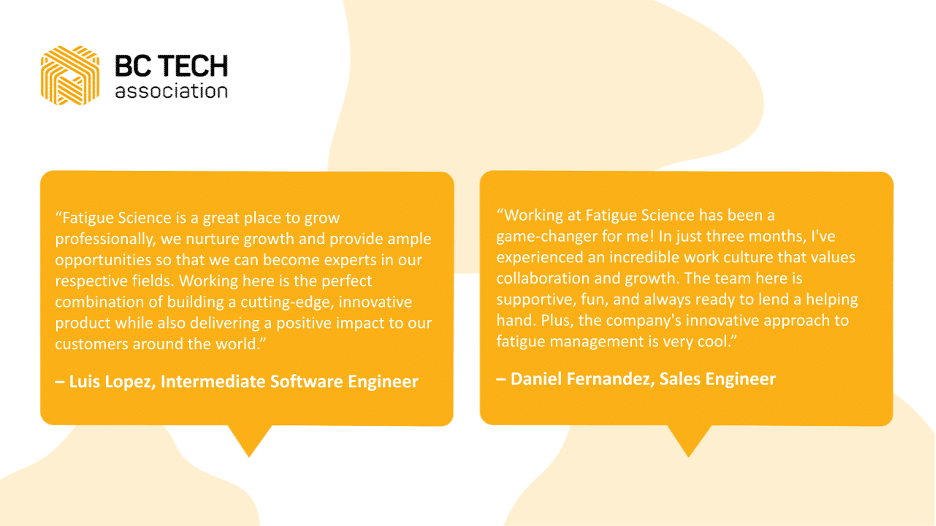17 Jul 2023 Aspire to Tech – Fatigue Science

Tell me about your company. When were you founded? What do you do? And where are you located?
Fatigue Science was founded in 2006 in Vancouver, with the purpose of creating safer work environments for workers in the mining industry. We are currently also targeting the transportation sector; however, mining has been the main focus of Fatigue Science.
What is the big problem that your company is tackling?
There is a connection between human sleep, and the ability to react safely and appropriately to the things that people encountered during their workday. Specifically, sleep is very important when people have to deal with dangerous work environments. For example, operators of heavy machinery or other powerful machinery or tools.
Fatigue Science gathers information about workers sleep during the night, and then use a mathematical model, converting this information in predictions before their shift. These predictions relate to periods of heightened risk, or recommendations to avoid scheduling certain employees to perform dangerous work tasks. This is designed to significantly reduce the number of workplace accidents.
The key difference between Fatigue Science and our competitors is that our competitors generally only monitor the current condition a worker may be in at a given time, meaning they can only offer reactiveassistance. Fatigue Science uses more data to offer predictive information – so a supervisor can know who is more likely to be fatigued before a shift even starts so they can make staffing adjustments as necessary.
What are you most proud of in terms of company Milestones?
We are very proud of how we leverage cutting edge technology to convert raw sleep data into accurate, real-world predictions. Fatigue Science integrates wearable tech to gather even richer data, which is fed into our machine learning models to produce even more accurate predictions, based on years of data.
Fatigue Science is also able to use the data that has been collected over the years, to offer improved safety services to companies whose workforces are so big that they cannot easily implement wearable tech to their workers. Offering solutions at every level is something we are also proud of, as well as our ability to create value for our clients by reducing the number of injuries workers suffer.
How would you describe your company culture?
The culture at Fatigue Science is great and it boils down to two things. The first is that we are a truly innovative company. Our employees are empowered to choose the most efficient and newest solutions that are available to tackle the types of engineering tasks we face. This allows us to stay nimble and take advantage of opportunities.
The second thing that contributes to the company culture we have created is the strength of our internal relationships. Our culture is very supportive, and we have created an environment that is positive, and inspires collaboration and good ideas.
What are three words you would use to describe your company culture?
Innovation, Supportive, and Open.
Our senior leadership team is very open about sharing their plans for the company. This helps the whole team feel more involved with the overall direction of Fatigue Science. We are always encouraged to be creative and to think of new solutions to challenging problems, which is why innovative, supportive, and open are good reflections of Fatigue Science.
What is it like to work for your company, and why is it a great place to work?
Our mission is to create a safer work environment for workers. That itself is a goal that motivates us every day to push forward. It is touching, in a way, because ultimately, it’s about protecting people. We believe what we do makes a significant impact on the lives of our customers and their workers. On top of that, we’ve fostered an environment that is friendly and open.
In their own words, what do your employees say?

Are you hiring?
Fatigue Science is hiring! Interested candidates can go to our careers page to check out any of the multiple available positions.

